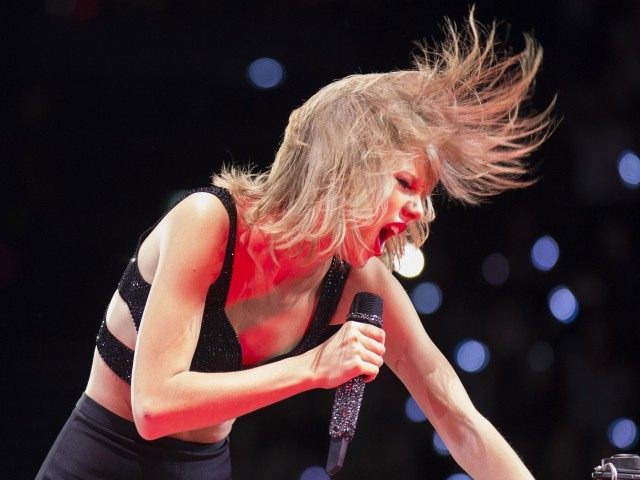It took just 12 hours for Taylor Swift to crush the most powerful brand on the planet by taking to Tumblr to accuse Apple’s post-Steve Jobs management of being greedy corporate scum trying to cheat artists out of their royalties in the launch of Apple Music.
Facing an existential threat as Swift launched a rebellion aimed at the 60 million “Gen Z” consumers who hear their voice in Taylor Swift songs and lyrics, Apple management panicked and agreed to pay what could be hundreds of millions of dollars in additional royalties.
Two weeks ago at Apple’s World Wide Developer Conference, Apple launched a subscription music service offering unlimited listening and artist-curated internet radio for $9.99 a month using technology from its $3 billion Beats acquisition. The company claimed that with its 700-million-iPhones-installed base, “Apple Music is a revolutionary streaming music service, a pioneering worldwide live radio station from Apple broadcasting 24 hours a day and a great new way for music fans to connect with their favorite artists.”
Apple offered a three month free trial-subscription to Apple Music “for folks to try it out” beginning on June 30. Consistent with the ethics of the post-Steve Jobs era, Apple’s management told musicians it would not pay any royalties during this period, because Apple would not be receiving any revenue from giving away the music artists’ content.
Despite having $200 billion in the bank, Apple thought that with iTunes as the top music site in the world, it had the power to force enraged artists to bow to Apple edicts. Anton Newcombe from the Brian Jonestown Massacre band tweeted that when he balked at offering his music for free for 3 months, Apple said it would take his music off iTunes.
Taylor Swift, the number-one selling female artist in the universe, then released an “open letter” Sunday morning stating that Apple Music would not have access to her latest album, 1989, because the service isn’t paying artists or producers during a the subscriber trial period. “We don’t ask you for free iPhones. Please don’t ask us to provide you with our music for no compensation.” Swift added she was most concerned about the “young songwriter” who is counting on that first single to stay afloat.
She also compared Apple’s current management to Steve Jobs: “I find it to be shocking, disappointing, and completely unlike this historically progressive and generous company.”
Fans posted 70,020 notes on her Tumblr page, almost all siding with her, and many raging against Apple’s corporate mentality.
Advertisers are abandoning the recession-traumatized Gen Y millennials who are not as eager as previous generations to become saddled with possessions–a sentiment reflected in low home ownership rates and the thriving “sharing economy.” They have moved on to Generation Z–those 17 and younger–as the demographic in the crosshairs of brands and retailers, like Apple, who understand these teens’ materialistic spending habits are the antithesis of their financially conservative older brothers and sisters.
Millennials, who graduated college during a recession and watched their parents struggle with layoffs, aren’t attached to possessions, Jamie Gutfreund, chief marketing officer at digital marketing agency Deep Focus, told Investor’s Business Daily. He observes that millennials see property like cars and homes weighing them down. They see themselves as “have-nots.” They prefer renting, riding Uber, and buying on Craig’s List.
Gen Z members definitely aspire to be “haves,” according to Deep Focus. Six out of 10 Gen Z-ers would rather have a cool product than a cool experience, while 77% of millennials would opt for a cool experience. Because millennials were teenagers when the dot-com bubble burst, only 28% view having lots of money as an indicator of success. But 51% of Gen Z’s 14- to 18-year-olds view having lots of money as success.
Taylor Swift “owns” the 12-to-17 demographic. She personifies Gen Z’s fashionista dreams of glitz and glamourous living. It is estimated estimated by Vulture that she took in $239 million in income between 2008 and 2014, and that she owned $86 million worth of real estate and airplanes. According to the Forbes list, Ms. Swift’s worldwide ratings are #64 in Power Women; #18 in Celebrity 100; #29 in Money; #23 in Press; and #5 in Social.
Swifts’ viral call for a Gen Z rebellion against Apple came right from the lyrics of her hit tune, “Bad Blood“: “Cause, baby, now we got bad blood. You know it used to be mad love. So take a look what you’ve done. Cause, baby, now we got bad blood. Hey…”.
Panicked after suffering an enormous hit to their brand’s key demographic, Apple’s Senior Vice President of Internet Services Eddy Cue said in an interview late Sunday, “When I woke up this morning and read Taylor’s note, it really solidified that we need to make a change.”
A triumphant Taylor Swift tweeted to her 59.2 million followers:

COMMENTS
Please let us know if you're having issues with commenting.